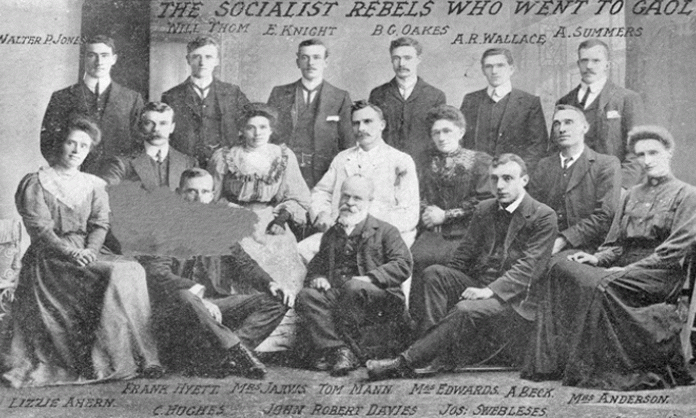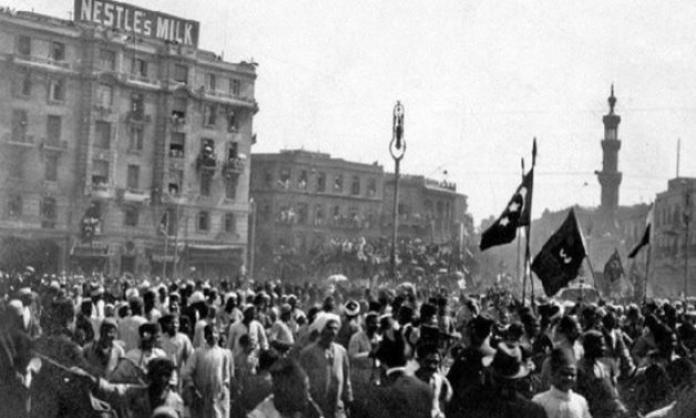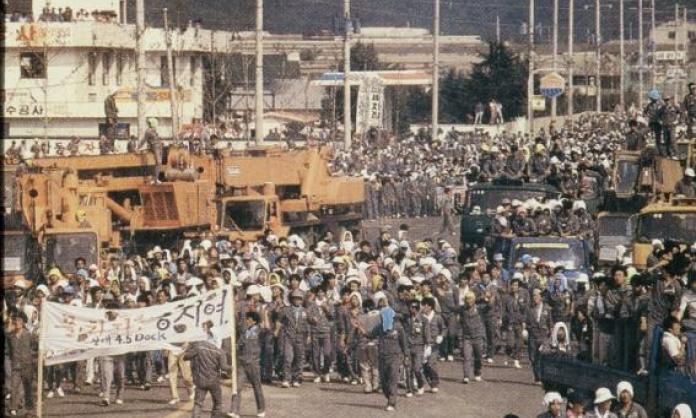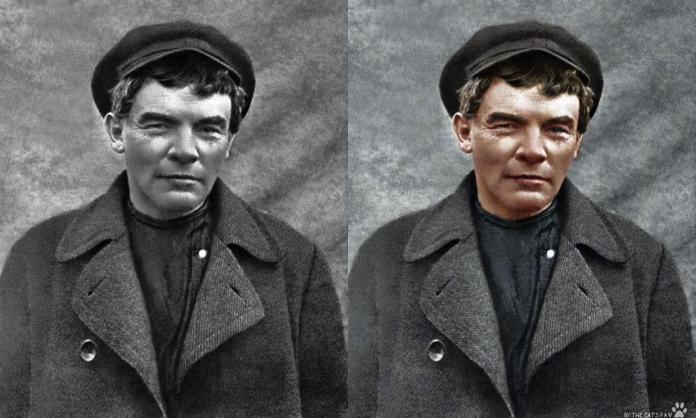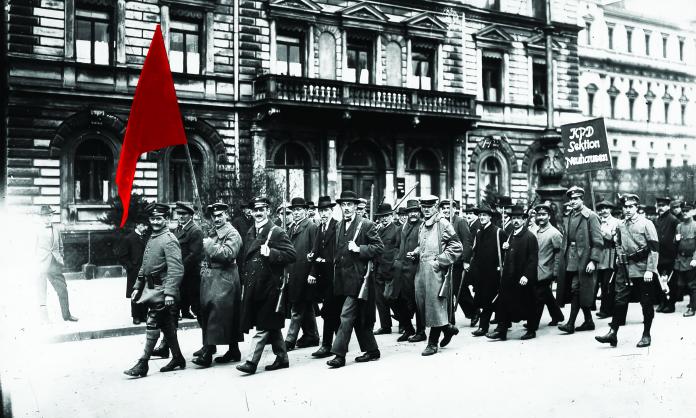Female leaders have often earned prominent places in the union and socialist movements in Australia. Lizzie Ahern was foremost among them. Her militant, iconoclastic attitude won her many supporters and not a few enemies. Her early political career stands, 100 years later, as an inspiration for young rebel women.
Ahern was born in Ballarat, the daughter of a miner who had emigrated from Ireland. She was involved in various political groups including the Political Labor Council (the ALP) before joining the Social Questions Committee in 1905, which subsequently became the Victorian Socialist Party.
The VSP was an explicitly revolutionary organisation, which had a peak membership of around 1,500. (Today’s equivalent would be an organisation of more than 8,000 members in Melbourne.)
The VSP focussed on education and public speaking. It ran weekly meetings in the Bijou Theatre that often attracted crowds of more than 1,000. There were also meetings at Yarra Bank, which could attract tens of thousands.
Ahern was one of the party’s most popular speakers. The Broken Hill newspaper Barrier Miner described her oratory in glowing terms: “Of the woman speakers Australia has produced, Miss Ahern stands in the front rank. She has a strong and resonant voice coupled with an earnestly impressive delivery, and pleasantly human manner …
“By common consent, she is credited with being one of the most sincere and stirring speakers Broken Hill has heard.”
In 1906, Ahern was jailed for participating in the VSP’s free speech campaign. The police had decided that socialists were not allowed to speak in public in Prahran, which was common practice at the time for many organisations, including temperance campaigners.
VSP speakers were arrested on their platform as they rose to speak. As one was arrested another would rise to take their place.
When the trial occurred, the party organised demonstrations outside the courthouse. According to the Poverty Bay Herald, “Outside the police station a procession was formed and kept marching round the block, halting each time at the police headquarters to sing ‘The Red Flag’.”
Around half of those who were convicted, including Ahern, refused to pay their fine and were subsequently sent to prison. Popular postcards of those jailed were produced to raise funds.
Ahern was not just an orator but held important positions, including membership of the VSP’s executive committee for six years and vice president in 1906-1907. She was also a delegate to the Political Labor Council in 1907.
After the free speech campaign, Ahern moved to Broken Hill. Here she continued her public speaking on topics such as “The war of the classes and its resolution” and “The revolt of the woman”.
A flavour of her speeches is to be found in a notice in the Barrier Miner, which was issued to a politician who had clearly offended Ahern.
“As you have vilified the Womanhood of the Socialist movement and previously declined to debate your anti-Socialist position”, it read, “you are hereby challenged to Debate on ‘SOCIALISM AND MORALITY’ against MISS LIZZIE AHERN (of Melbourne) now in Broken Hill. If you are game, notify the Secretary of the Social Democratic Club.”
Ahern was also involved in educating young socialists, running classes in the Broken Hill Sunday school on economics and other topics.
Her campaign for women’s rights was informed by her socialist worldview – for her the two were inseparable. For example, the report from the South Australian Advertiser on her speech on “The revolt of woman” ran:
“[S]he believed the wives of the working class had a right to say when they should take upon themselves the responsibility of motherhood.
“Until women recognised their position in life they would continue to be degraded, and they must take up a position with the men of the working class and assist in the overthrow of a system which had held them down in subjection and degradation.”
In 1916 the labour movement threw everything into the fight against conscription during World War I. Ahern moved back to Melbourne, becoming the secretary of the Women’s Anti-Conscription Committee and the Caterers’ Union delegate to the Melbourne Trades Hall Council.
Unfortunately, her outstanding achievements and those of other VSP women are downplayed by some feminist historians to justify their own attitude towards the labour movement.
For example, Joy Damousi wrote of the period when Ahern was storming soap boxes and giving hell to prosecutors:
“[T]he public realm of speaking, proselytising and agitating was perceived to be the preserve of male activists. These activities were associated with manliness which found its expression in the public realm. Female activists were removed from their realm and occupied the domestic sphere.”
It’s about time we reclaim the rebel women of the workers’ movement. We can be confident that there will be many more like Lizzie Ahern in the future.




